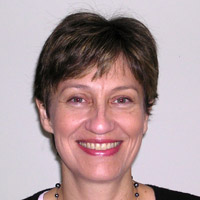
The goal of our current research is to understand the nature and the dynamics of charge-ordered states in the presence of other, competing phases in strongly correlated materials, especially in the vicinity of quantum critical points. Indeed, the role of collective fluctuations near quantum critical points is increasingly recognized as one of the key questions in the physics of strongly correlated systems, but there have been few studies of charge, as opposed to spin, dynamics. Our work seeks to close this gap by using time-resolved charge transport measurements (e.g. resistance noise spectroscopy) on very long time scales, which in our prior work proved to be powerful probes of out-of-equilibrium or glassy charge dynamics, quantum critical points, and novel, intermediate phases. These time-resolved techniques, combined with various linear and nonlinear electrical transport measurements, are used to reveal and clarify the interplay of strong electronic correlations and disorder in two-dimensional (2D) and quasi-2D systems, and the nature of various ground states and quantum critical points.
Topics include quantum phase transitions, such as the metal-insulator transition in 2D semiconductor heterostructures and the magnetic-field-tuned superconducting transition in copper-oxide high-temperature superconductors; structural transitions in cuprates and iron pnictides; charge dynamics (glassy freezing and other out-of-equilibrium behavior); interplay of charge order and superconductivity; superconducting fluctuations and vortex dynamics; mesoscopic effects. Experiments are performed over a wide range of temperatures, from the millikelvin regime up to room temperature, and over a wide range of magnetic fields. The Popovic lab is located at the National High Magnetic Field Laboratory (NHMFL) at Florida State University, which is the world’s premier facility for research in high magnetic fields. In addition to the magnets and cryostats in our own lab, we regularly perform experiments in the NHMFL’s unique high-field magnets up to 45 T.
Postdoctoral applicants are expected to have experience in one or more of the above research topics or relevant experimental techniques. Training would be provided in other areas, as needed. In addition, training in preparation of research articles, reports, magnet time requests and grant proposals, as well as presentation skills would also be provided.
